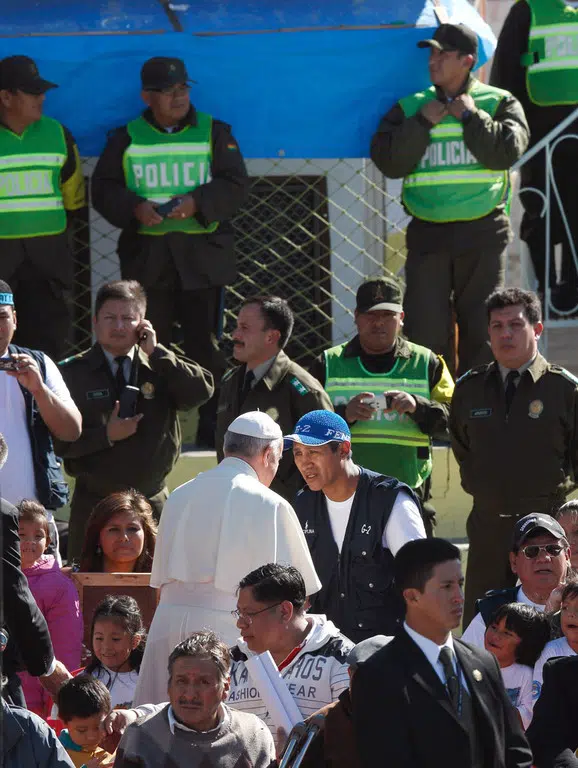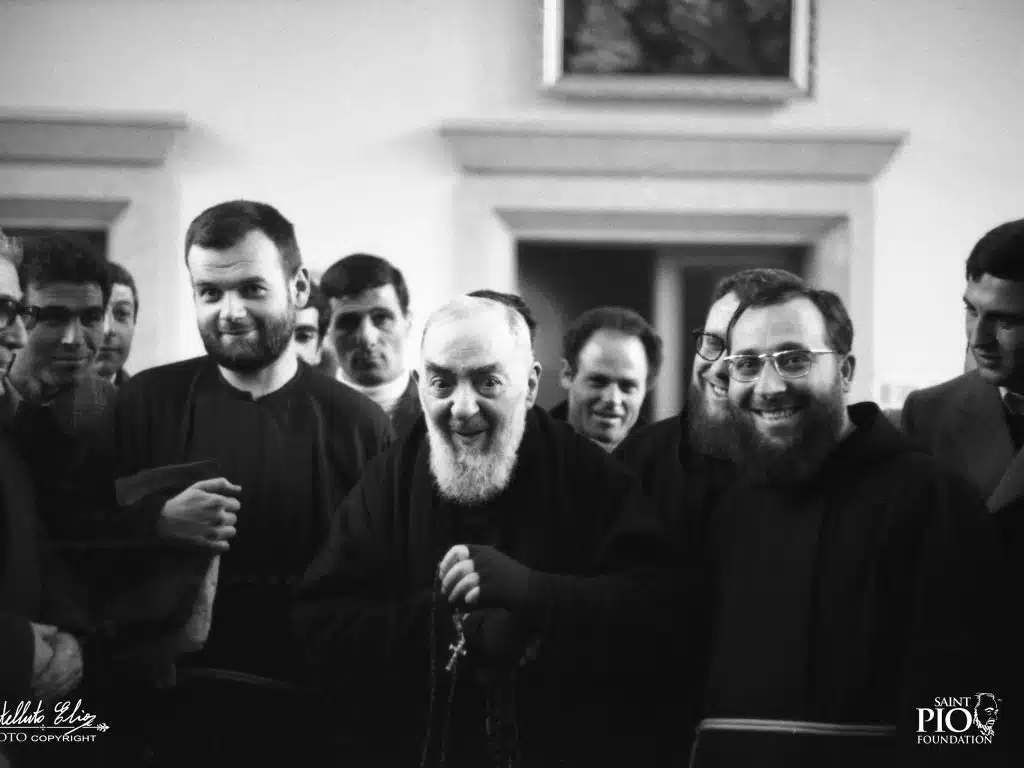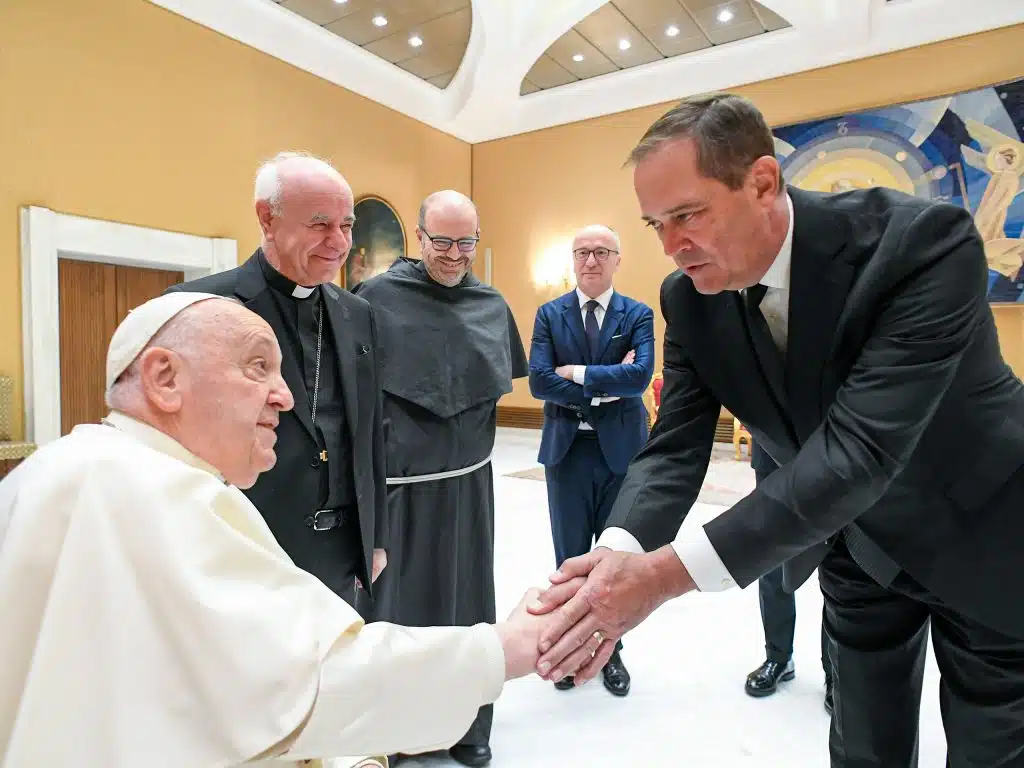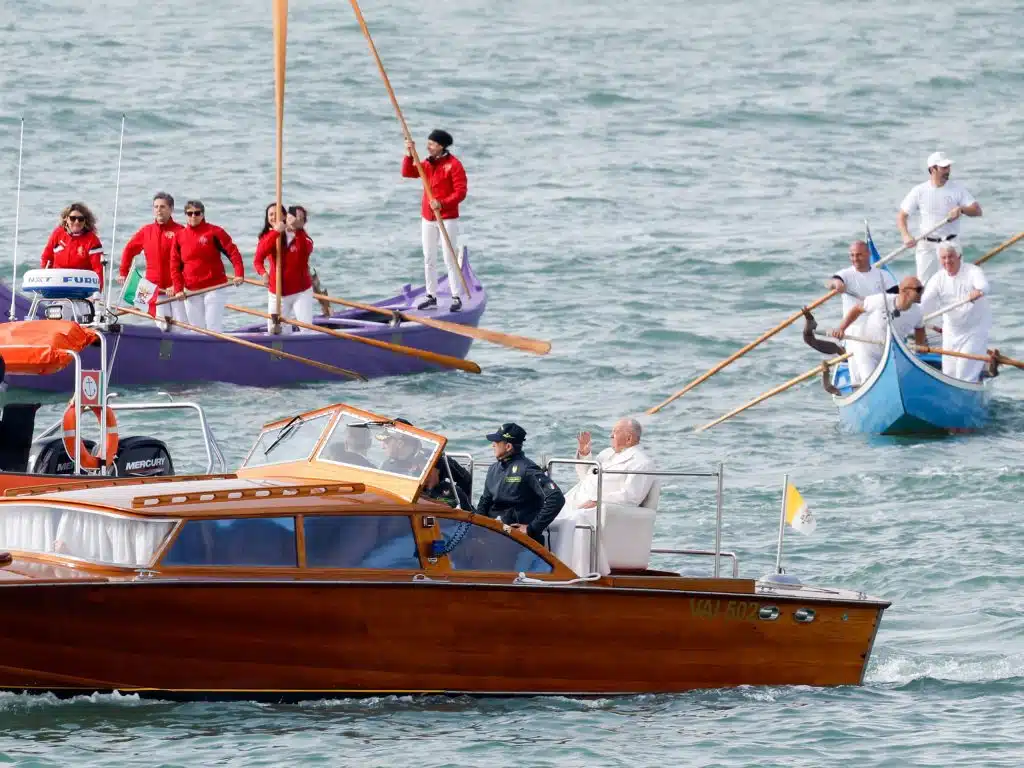SANTA CRUZ, Bolivia – Ernesto Rossell was born Catholic, went to Catholic schools and was married in the Catholic Church, though he fell away from his faith. But he said seeing the election of Pope Francis, witnessing the pope in person and working on the organization of the papal trip has helped bring him back to his Catholic roots.
“We hadn’t seen a leader that motivated us to return to our faith,” said Rossell, a father of two daughters and official in Bolivia’s tourism ministry. “It’s easy to identify with him, perhaps because he’s from Latin America. … But he’s close to the people and very believable.”
“He makes us feel part of the church,” says Alejandra Loyola, Rossell’s wife and also a government employee. “It gave me goose bumps when the pope arrived.”
Such sentiments were expressed in Santa Cruz after Pope Francis finished a less-than-48-hour visit that attracted large crowds. The visit included a historic apology to indigenous peoples for the actions of the church in the “so-called conquest” of the Americas.
Church officials expect the visit to renew the faith of a largely Catholic population and bring about better relations with the Bolivian government after a decade of difficulties.
“People aren’t thinking about politics,” said Auxiliary Bishop Braulio Sáez Garcia of Santa Cruz, who arrived in Bolivia more than 40 years ago as a Discalced Carmelite missionary. “The beautiful part of this visit is that the pope came once again to comfort the Bolivian people, to encourage them and strengthen the faith that they have.”
During the visit, politics was never far from the discourse of President Evo Morales, who, in his welcoming remarks, brought up an ongoing dispute with Chile over landlocked Bolivia having access to the sea. Pope Francis responded with impromptu remarks in the La Paz cathedral, encouraging “dialogue” and, “building bridges not building walls.”
The papal plane had barely taken off July 10 when Bolivian Foreign Minister David Choquehuanca told media at the Santa Cruz airport, “We’re not the ones that want to cut off dialogue.”
Morales also raised eyebrows by presenting Pope Francis with a hammer and sickle crucifix, a replica of one made by slain Jesuit Father Luís Espinal, whom the pope honored upon arriving in Bolivia.
Bishop Sáez said many in the church would have preferred politics stay on the sidelines and the controversial cross stay out of sight. He said the Morales’ presentation of the Espinal-inspired cross was a surprise and not viewed well.
“We know that Christ’s cross had another dimension, which is the expression of a God who died on the cross, but not with the hammer, only love,” the bishop said, “and not with the sickle, rather with willingness to welcome all at the cross and die for all humanity.”
The pope asked about church-state relations in a private meeting with bishops prior to leaving, along with issues such as a crisis in vocations in Bolivia and how priests were getting along in a country with a very poor church, Bishop Sáez said.
The pope celebrated Mass July 9 in Santa Cruz and visited the Palmasola prison where he called for solidarity with an oft-neglected part of the population.
Even though politics stole some of the headlines, the subject was far from the minds of most Bolivians, who embraced the first Latin American pope as one of their own.
“Anything with an image of the pope on it sells well,” said Ronaldo Moreira, an employee in a shop selling religious items. “Hopefully we will all get along better after this visit.”



